Avocados are a nutritious and delicious fruit that many people enjoy consuming. It’s rich in vitamins, minerals, and healthy fats that help keep you healthy. Because of that, it’s a staple in many cuisines.
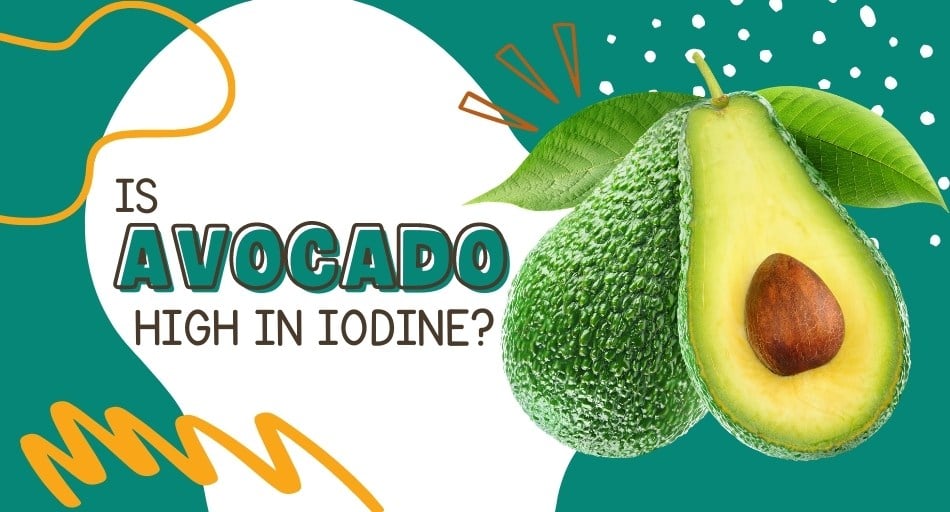
Sometimes, though, you’re looking to add a certain food to your diet to up your intake of a certain nutrient.
For example, if you want to get more iodine from your diet, you need to consume more iodine-rich foods. So, can avocado help you do that? Is avocado high in iodine?
Table of Contents
Is avocado high in iodine?
Just like all fruits, avocado is very low in iodine. Because of that, it’s not a good food to choose in order to up your intake of this mineral. Avocados are also high in calories, which means that you would have to consume a lot of them to get any decent amount of iodine.
On the bright side, this fruit is rich in antioxidants and various nutrients that contribute to good health. They’re also loaded with healthy fats and omega-3 fatty acids, which help prevent many health issues.
How much iodine is in avocados?
On average, a single portion of avocado contains around 3 micrograms of iodine, which is very little. So, it’s important to consume other high-iodine foods to meet your daily requirement for this mineral.
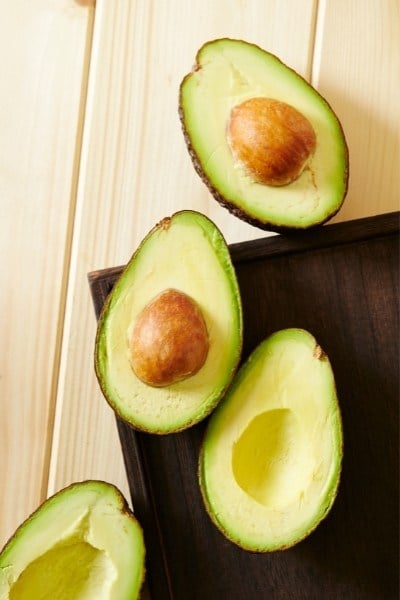
It’s also good to remember that this amount can vary depending on the serving size and where the avocados have been grown.
If they have been cultivated close to the ocean or sea, they’re most likely to have a much higher iodine content.
But, as you may know, avocados require warm climates to grow, so most of them are still low in this mineral.
Other avocado-based products like guacamole are low in iodine too. They’re also often highly processed and high in additives.
So, try avoiding them or make them yourself with fresh avocados. That way, you can also be sure you’re consuming more iodine from them.
Can you take in too much iodine from avocados?
Avocados and other fruits are very low in iodine, as they grow in climates that are deficient in iodine. Because of that, it’s impossible to get too much iodine just by eating avocados.
Since avocados aren’t especially high in iodine, getting this mineral from other high-iodine foods is important to prevent iodine deficiency. So, don’t be afraid to include such foods in your diet.
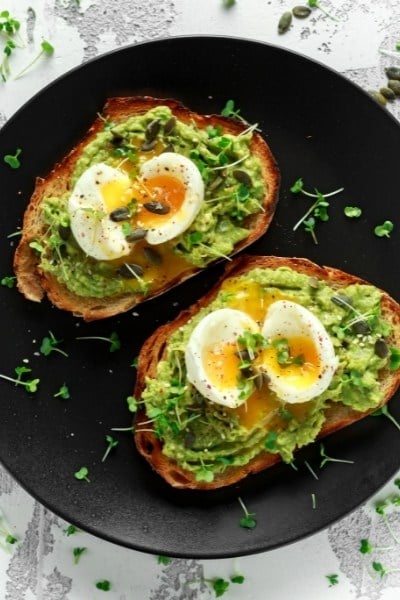
Iodine overdose usually happens when people take supplements, as these are extremely high in this mineral.
So, if you’re sensitive to iodine or need to control your intake, make sure to avoid taking such supplements unless you’ve consulted with your doctor.
Is avocado oil high in iodine?
Avocado oil is also very low in iodine. Even though it’s concentrated, it’s very calorie-dense, which means that you won’t get a lot of minerals like iodine from it unless you eat a lot of it.
This doesn’t mean that you can’t include avocado oil on a healthy, balanced diet, though. This type of oil is high in oleic acid, vitamin E, and monosaturated fats, which are all great for the health of your heart and disease prevention.
Is guacamole high in iodine?
Guacamole, a common dip, is made with avocados, lemon or lime juice, tomatoes, and pepper. While there are various varieties with different ingredients, guacamole is also low in iodine, as it contains mostly veggies.
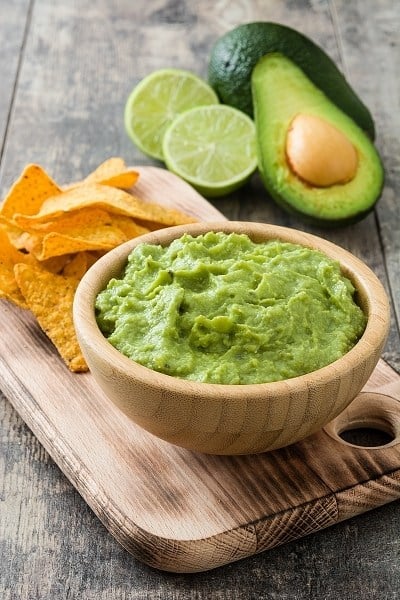
On the other hand, it’s very easy to make guacamole much higher in iodine. Simply add some iodized salt to your guacamole, which will easily increase your intake of this mineral.
So, while on its own, guacamole isn’t rich in iodine, there are ways to increase its content of this important mineral.
Are avocados good for you?
Most calories in avocados come from healthy fats. This kind of fat helps keep your heart healthy by lowering the levels of ‘bad’ cholesterol and increasing the levels of ‘good’ cholesterol.
This also reduces the risk of plaque buildup in your arteries, heart attacks, and strokes. So, it’s important to include a lot of foods rich in healthy fats in your diet.
One avocado provides you with half of your daily need for vitamin K. This fat-soluble vitamin is important for bone metabolism, blood-clotting factors, and healthy tissue.
Since this vitamin needs fat for proper absorption, getting it from avocados ensures that your body will absorb as much as is found in avocados.
Regularly eating avocados can also help you get enough vitamin C from your diet. This micronutrient helps with the absorption of iron and also speeds up wound healing.
Getting enough vitamin C can also reduce your risk of various diseases and health issues, as this vitamin boosts your immune system.
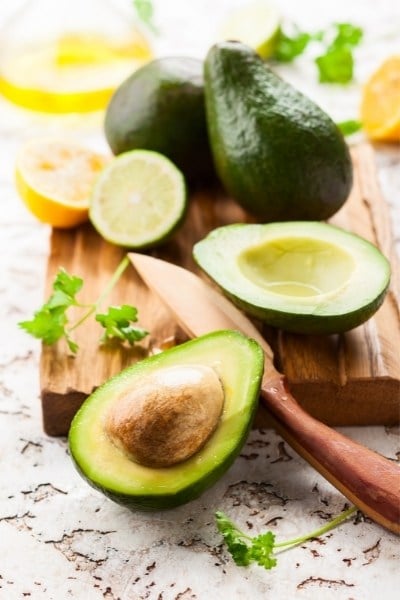
Avocados are also a rich source of antioxidants as well as anti-inflammatory compounds.
These plant compounds help flush out free radicals from your body, preventing oxidative damage to your cells. This reduces your risk of several chronic conditions, including heart disease, diabetes, and cancer.
The anti-inflammatory compounds found in avocados also help prevent inflammation in your body. While inflammation is helpful, it can lead to various health issues when it becomes chronic.
So, since eating avocados helps prevent that, it’s good to include them in your diet.
What’s more, according to various studies, eating avocados can help you lose weight or manage a healthy weight. Experts believe that it’s because of avocado’s high fiber and fat content.
These two nutrients contribute to satiety, reducing your risk of overeating. They’re also much better at curbing your hunger levels than simple carbs.
So, including small amounts of avocado in your diet can help you shed some pounds.
Conclusion
Avocados, just like all fruit varieties, aren’t high in iodine. It’s because they’re often grown in places where they don’t have a high concentration of this mineral in the soil.
So, if you’re looking to add more iodine-rich foods to your diet, avocados aren’t the way to go.
On the bright side, avocados are rich in heart-healthy fats, vitamins, and minerals that all contribute to good health and disease prevention.
So, even though they’re not the greatest source of iodine, they’re still really good for you.
Sources: Nutrition Data, The Association of British Dietitians, NHS, PMC
